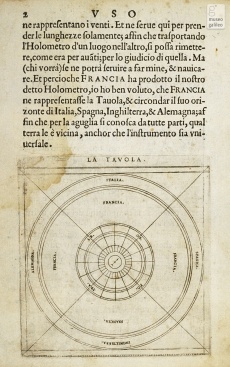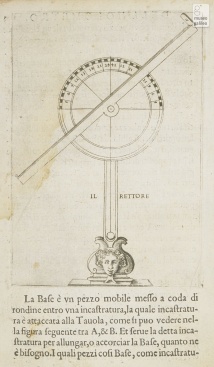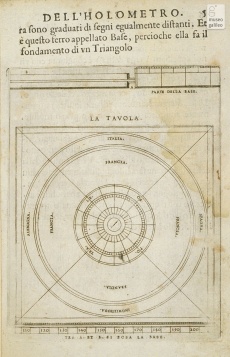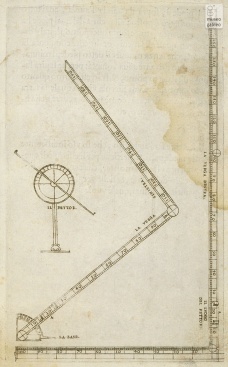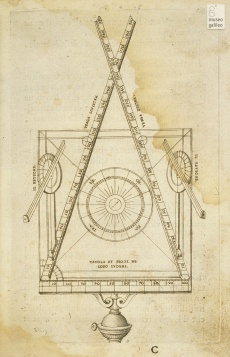Holometer
From Inventions
Name coined by the inventor combining the Greek words olos (all) and metron (measure).
Contents |
Inventor
Abel Foullon
Historic Period
1555
Description
Instrument for architectural measurements and surveying designed and described by Abel Foullon, mechanic to the King of France. The instrument closely resembles the system of graduated arms in Baldassari Lanci's distantiometer. It consists of a square board bearing a goniometric circle equipped with a compass. The graduated arms, here called verges, fold on themselves and are hinged to the ends of a graduated base coinciding with one side of the square. On each of the two verges is a "rector", a small goniometric circle carrying a diopter used to sight distant points, and to measure heights. Distances are measured from two stations, as with the distantiometer and the archimetro, and can be used to compile a corographic map.
Bibliographical Resources
Foullon, Abel. Descrittione, et uso dell'holometro: per saper misurare tutte le cose, che si possono veder coll'occhio cosi in lunghezza, et larghezza; come in altezza, et profondità. In Venetia, appresso Giordano Ziletti, 1564
Images
Author of the entry: Filippo Camerota
